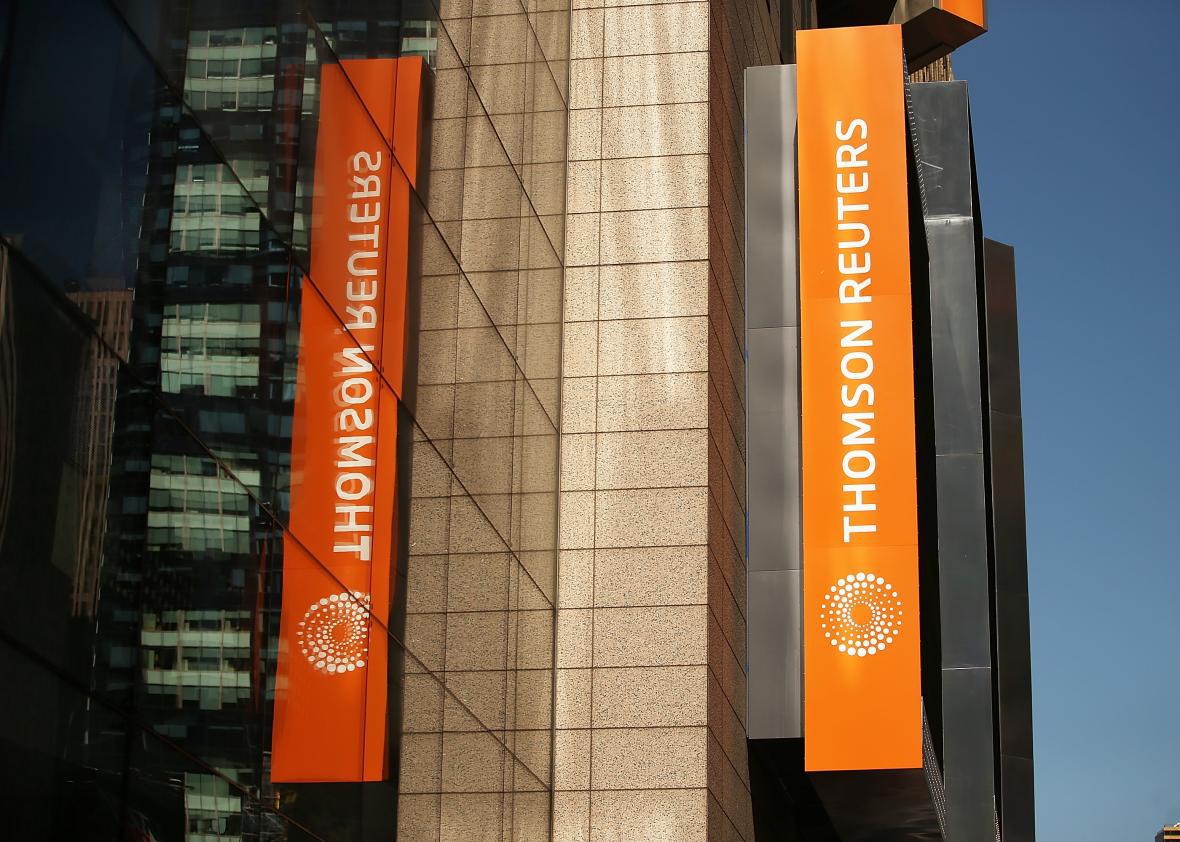In theory, noncompete clauses are intended to prevent employees with access to trade secrets from taking proprietary information with them to a firm’s competitor. But in recent years, these instruments have sprouted up in some of the most unlikely fields. In 2014, the Huffington Post discovered that sandwich chain Jimmy John’s was making low-level employees agree not to work for competitors for two years after leaving the company. Similar contracts have been found in Amazon warehouses, summer camps, salons, and doggy day care facilities. And now, the Wall Street Journal reports, legal newswire Law360 has enforced a noncompete agreement against at least one very unlucky journalist.
According to the Journal, reporter Stephanie Russell-Kraft left Law360 for a job at Reuters—only to find out weeks later that Law360 had notified Reuters of her noncompete clause. Reuters then fired Russell-Kraft for not disclosing the agreement—which prevented her for working in legal news for one year after leaving Law360—when she applied for the job. Russell-Kraft, who’d signed the agreement two years earlier, says she forgot about it—and now that she’s been unpleasantly reminded, she’s found that other publications are hesitant to hire her.
The good news? New York Attorney General Eric Schneiderman is reportedly investigating Law360 for violating state labor laws. (Laws surrounding noncompete agreements vary by state.) It seems likely that Schneiderman will find cause to take the newswire on. After all, “Previous court rulings in New York state have limited the use of noncompete agreements to safeguarding trade secrets or confidential customer lists,” according to the Journal. Law360 claims that “their former reporters had access to ‘critical and sensitive’ business information”—but it’s hard to see what kind of sensitive information a wire service would entrust to a junior reporter tasked with quickly summarizing information found on public court databases. Or at least information so sensitive that it was worth costing the reporter her job.
More likely, Law360 was just trying to make life hard for an employee it would rather have kept. But, as an employment law professor quoted by the Journal says, “You are not allowed to get a noncompete because you don’t want a person to quit.” And it is particularly petty and vindictive for Law360 to lord these clauses over young journalists. There’s a lot of mobility in journalism, and it’s not uncommon for young journalists to hop from one publication to another in a matter of months. In many cases, getting a job offer is the only way for young journalists to get a raise (whether they accept the offer or get a counteroffer from their current employer). Plus, it’s intellectually beneficial for journalists to get experience at different kinds of publications: working with different editors and practicing different modes of writing are tried and true ways for journalists to get better at their job. Cross-pollination is good for publications, too—journalists who’ve picked up various sources and techniques from other jobs are valuable journalists. And let’s not forget that journalism, though white-collar, is not a particularly lucrative field. It’s hard enough to make a living as a reporter even when you don’t have former employers trying to sabotage your career.
Even if Law360 wasn’t willing to let Russell-Kraft out of her contract because it was the right thing to do, it should have let her out of the contract for the sake of its own self-interest. After all, Russell-Kraft is a journalist. Journalists understand better than most people which kinds of stories provoke outrage, and they typically have the connections required to get a story into the public eye. Law360 should have known that screwing Russell-Kraft over would only lead to some really bad press.
